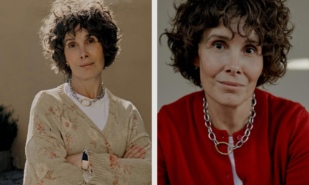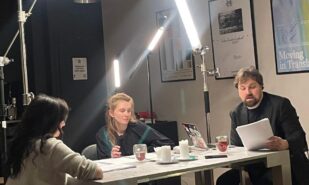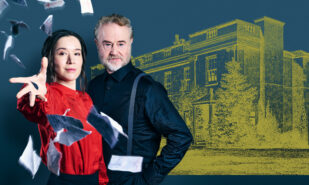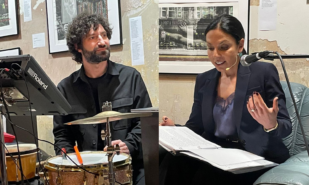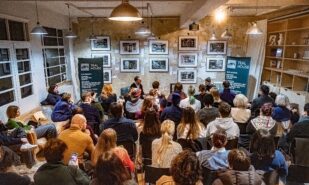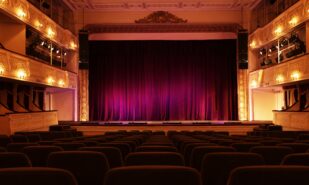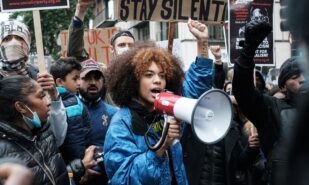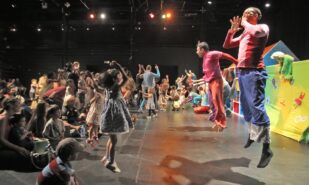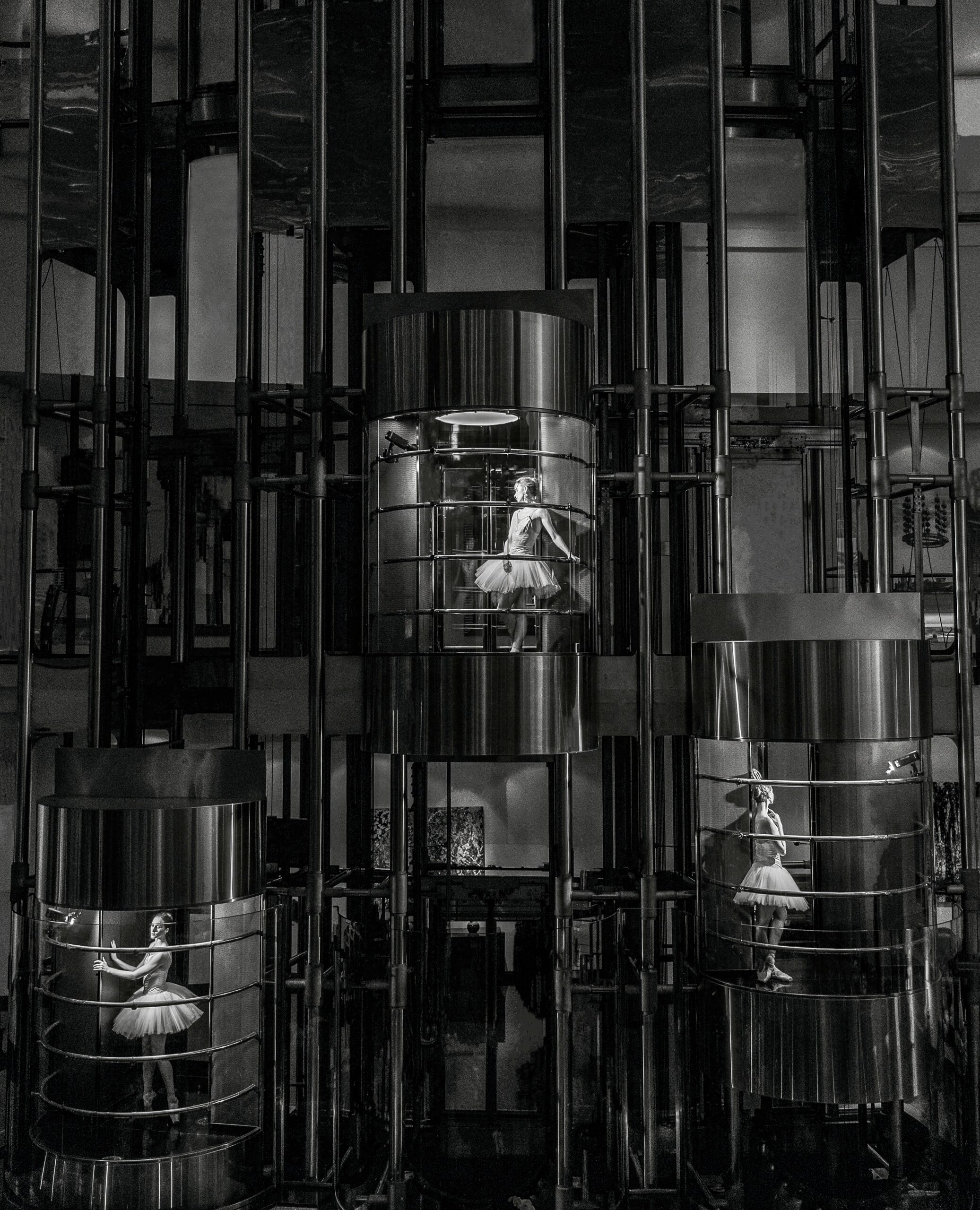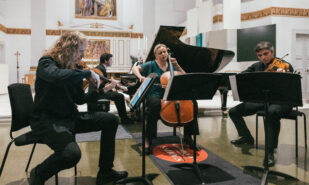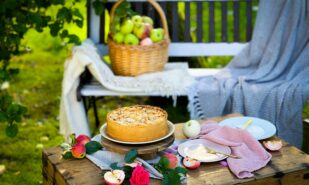«Transience of Fate», a new exhibition by ADH Gallery where the momentous meets the constant.
This weekend, from May 3rd to May 5th, ADH Gallery in Notting Hill will unveil its latest exhibition titled ‘Transience of Fate’. In our discussions with the featured artists, we delve into the exhibition’s central theme – the interplay between the ephemeral and the permanent. The exhibition’s title itself suggests a paradox. While “fate” traditionally stands for a predetermined course of events, the curators explore it through the lens of fleeting connections that can alter destinies, akin to the “butterfly effect”.
Artists within the exhibition examine the convergence of destinies in their creations. Certain encounters are fast and momentous while others forge long-term bonds. By fostering connections, we enrich our experience of existence and truly inhabit the state of “being”.
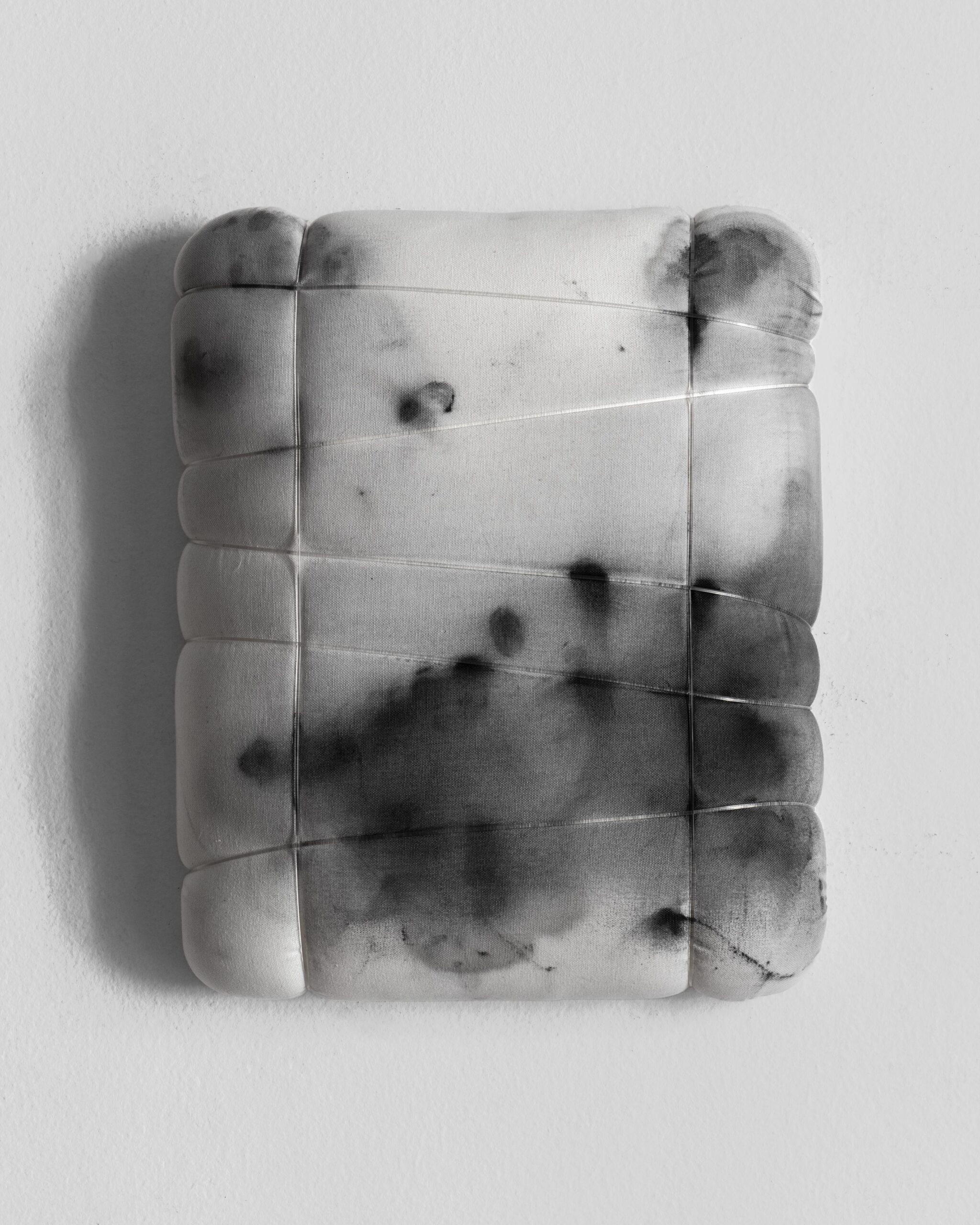
Nikolay Morgunov delves into the trajectories of existence, intertwining various elements within his creations. Aileen Kelly’s drawings embody a structured chaos, with elements arranged sporadically into systems or seeking their place within the composition. She revives images of traumatic encounters, etched onto paper, displaying fragmented lines and obscured identities just like faded memories.
Alena Mukhina’sartworks depict enduring connections and profound fulfillment. Her new series focuses on knots, symbols that can either save a life or stifle it, as she also delves into the exploration of local cultural codes within her work.
Aileen Kelly’s every work exists in a state of transience, constantly in flux between becoming and unbecoming. Stripped down to reveal its inner essence and essential nature, her art is exposed, raw, and vulnerable, yet imbued with strength and offering support. She communicates through nuanced hints, where certainty is elusive but every movement is purposeful. Kelly delves into the private lives of others, transforming fragments of their existence into acts of memorialisation.
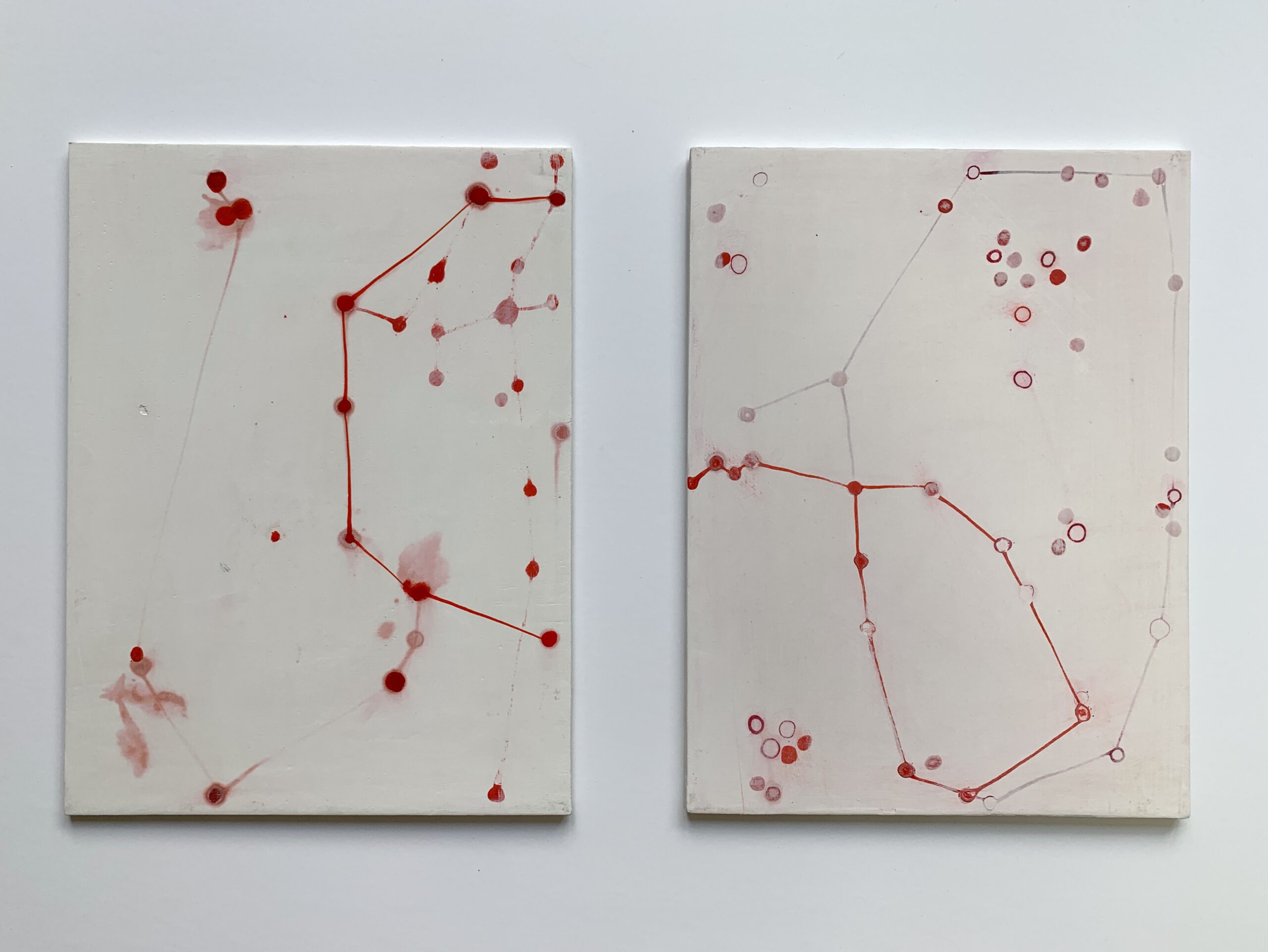
Aileen, chaos and order apply not only to life, but also to art. As anartist, how do you relate to these concepts?
“My mum came to visit me for a few days last week and during that time I dropped by my studio in Deptford to collect some materials. This time I was accompanied by my mum, who had only been to my studio once before, when it was all shiny and new. I opened the studio door to behold, what in her eyes, was a scene of utter disarray. In turn, and with an element of concern, she said, ‘I think I would get quite depressed if I had to work in this environment”
Yes, I must admit that it was in a pretty chaotic state, but her comment got me thinking. Most people couldn’t allow their domain of work to get to this level of disorder. It would be difficult for many to operate with such little structure and lack of clarity, but for me, it is a necessary ‘phase’ of the creative process. I was in that phase and my studio was a direct reflection of it.
Chaos and Order are two sides of the same coin. Over the years, I have come to learn that they too are the makers. Chaos brings forth new opportunity and unexpected possibilities; it has an energy fuelled by an air of freedom and uncertainty. On the other hand, I see Order as a tool, by which you tame this maelstrom of creative impulse. It helps in leading you to find balance and cohesion in your art.
When I am working I will intentionally create chaos especially if things are not going too well or I am just bored with the piece. I will destroy large parts of what I’m making forcing me and the work in a new direction. Doing this allows me to venture deeper into the making, but it is not without uncertainty. It is this same confusion that emboldens me to think outside the box, to take bigger risks. In an instant I can deconstruct weeks of labour, and in that same instant, I have created new possibilities.
Here lies the transformation from Chaos to Order. To get to this point requires you to be well out of your comfort zone especially when working to an exhibition deadline. The practice of taking apart and rebuilding the artwork over and over gives me clarity on what I don’t want to include, and so its a lengthy operation of editing and re-editing. Gradually over time, I begin to find order within the chaos until both facets can coexist within a single artwork.”
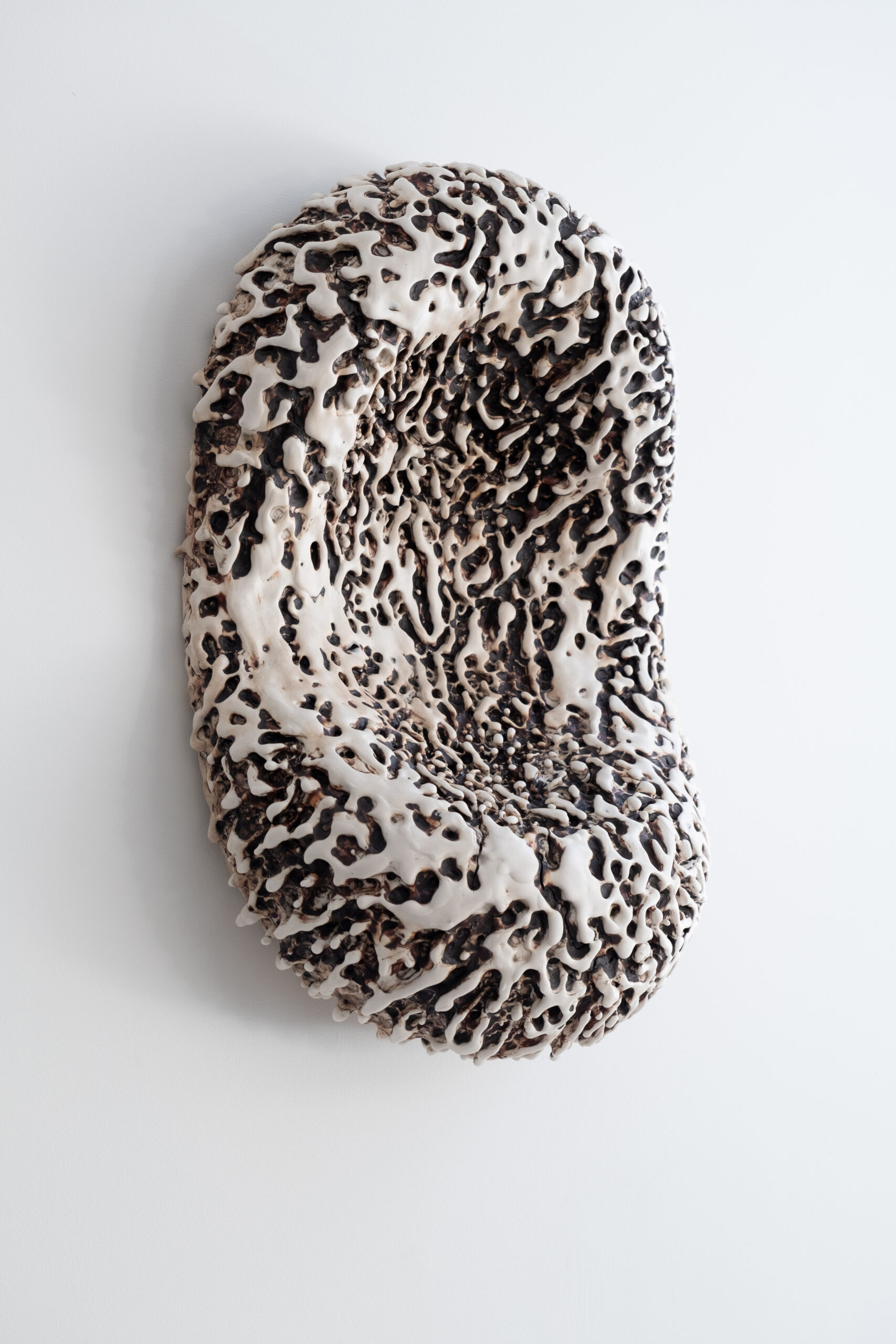
Alena Mukhina is an artist specializing in highly- textured ceramic sculptures.
Her objects combine biomorphic forms with complex multi-layered surfaces. Embracing the inherent qualities of ceramics, she employs unconventional techniques to preserve distinct textures and maintain the rich, earthy hues of the clay. She is interested in themes of human self-identification, migration, all about the problem of human transformation, studying it as a complex multidimensional phenomenon.
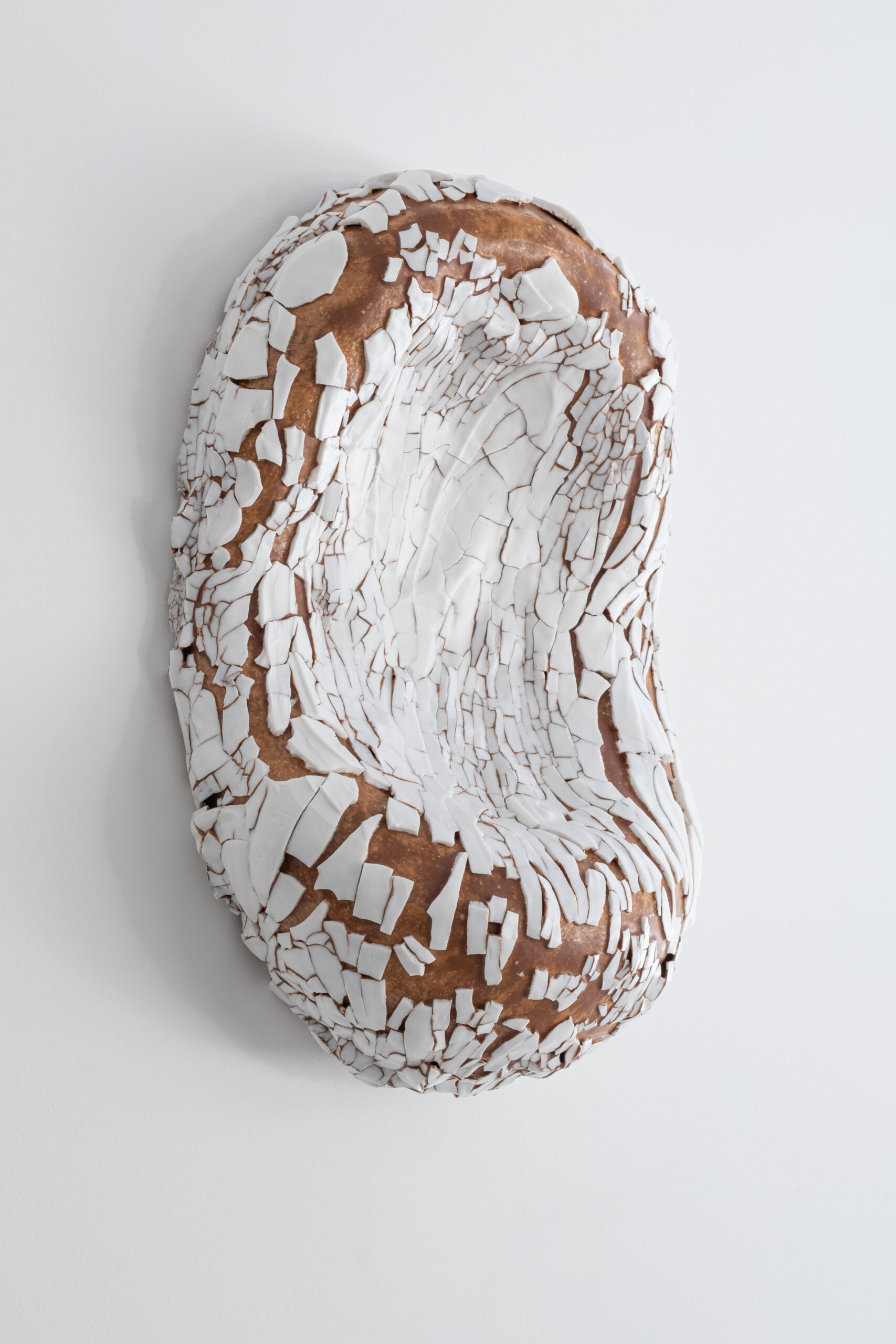
Alena, do you feel yourself a master of your destiny? How people who surrounds you help you to move forward in the right direction?
“I hold the belief in the predetermined nature of existence, yet I resist the notion of absolute fatalism. I believe in the fluid informational field, where individuals interact, shaping it and being shaped by it in return in similar fashion as Internet interactions. Thus, I feel like the master of my destiny in every moment of my life, but not all at once. It all depends on my state, mind-set, and environment: to what informationfield I “connect”. We shape and change the predestination of events together every day. The environment is the most crucial element of this system, as the contemporary artist is in constant discourse and must finely sense the changes in the informational field. Thus, destiny is not fixed but co-created in the interplay of self and surroundings.”
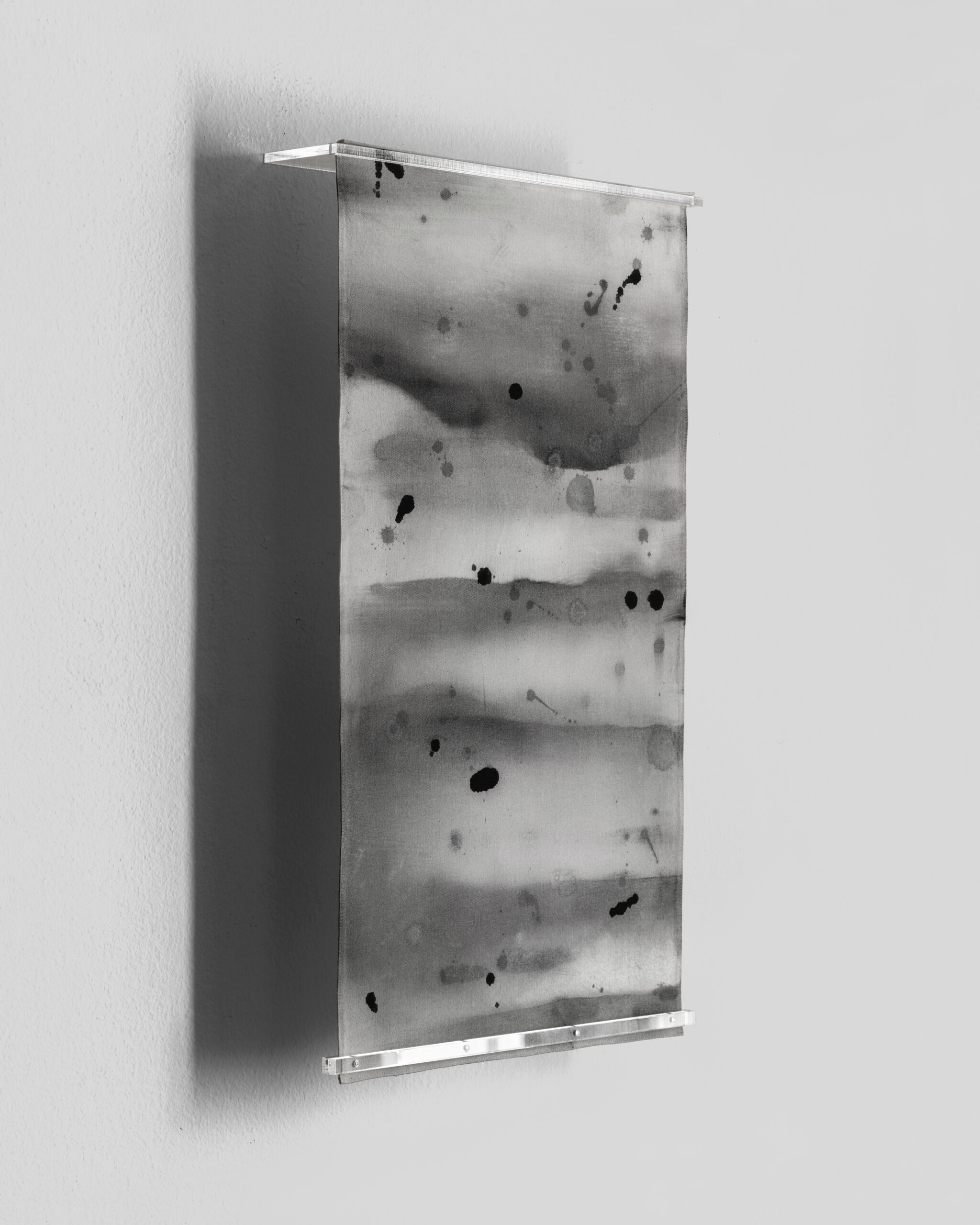
Nikolay, do you believe in predetermination of some events and destiny? How your artistic practice helps to see your personal direction?
“I don’t really believe that everything is predetermined in one single way. I am closer to the idea of the existence of many parallel universes, where a person’s choices can change the trajectory of their destiny. In the process of working on a painting I trust my gut and do not believe that this or that choice is worse or better. – It is only a variation in this particular reality. Each period of life has many different factors that distinguish it from others: sounds, colours, energy, information … but I tried to make such objects a trajectory. This trajectory is the trial left by human activity. We can see an intertwining of such trajectories. Sounds, colours, energy, information … What trajectory are we on now?”
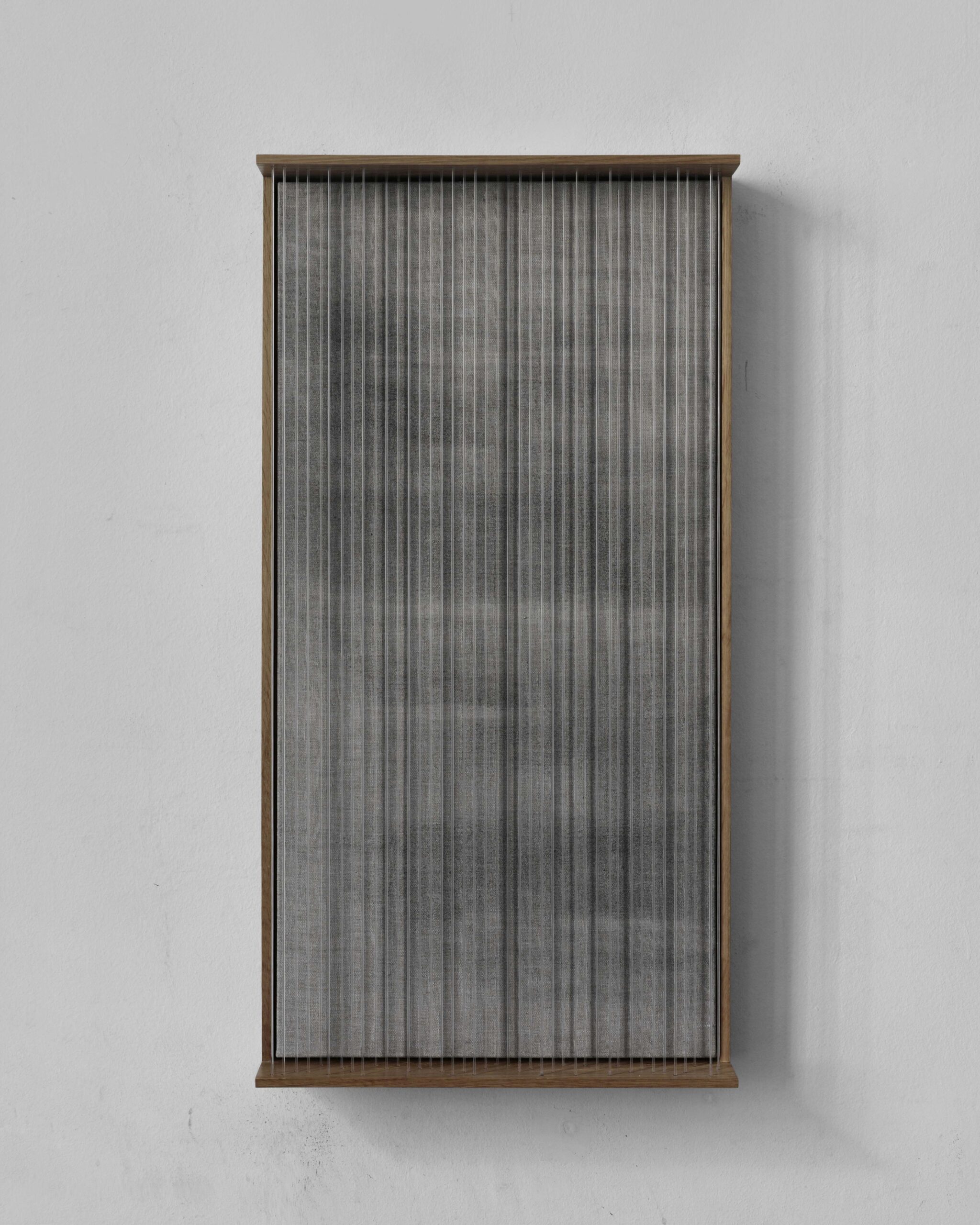
Exhibition “Transience of Fate”
Opening night – 03 мая 18:00 – 21:00
04 мая 11:00 – 19:00
05 мая 11:00 – 19:00
address: 7 Kensignton Mall, W8 4EB (Notting Hill Gate)

